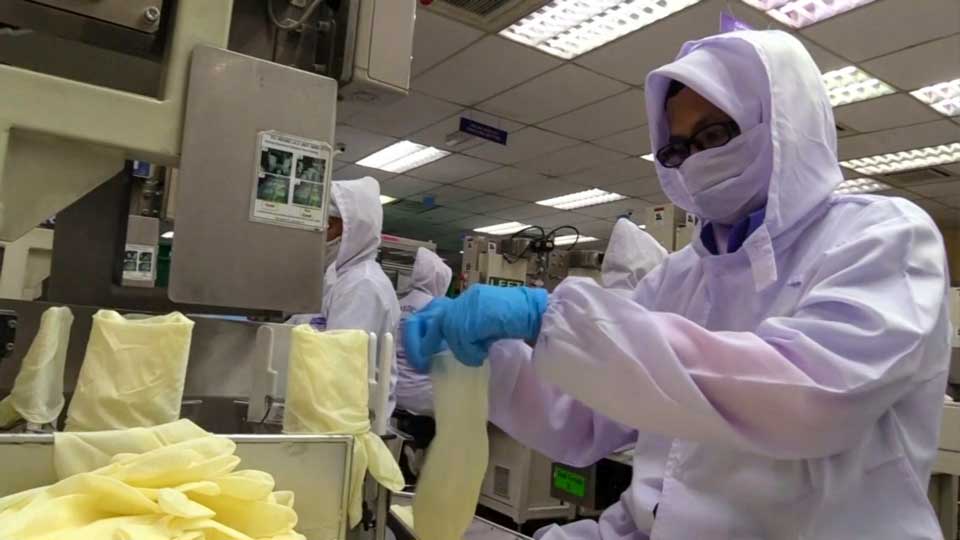A medical clinic in the city of Funabashi gets through close to 500 pairs of gloves a week. That's been the case since the pandemic began earlier this year.
The clinic's deputy director, Doi Yoshiyasu, says it's getting difficult to source the item, and the price has doubled. He urges authorities to prioritize resource allocation to the people who need it most.
A recent survey of medical staff involved in the fight against COVID-19 found the shortage is becoming a serious issue nationwide. Almost 60 percent of those who responded said that they were running out.
Some facilities have resorted to using gloves that are not medical grade, but Professor Sugawara Erisa, an infection control expert at Tokyo Healthcare University, says that's putting people at risk.
"Sending frontline workers in without medical-grade gloves is like sending them to war without ammunition," she says.
Global competition for supplies
One reason for the shortage is that Japan, like many countries, relies heavily on imports.
Malaysia produces two-thirds of the world's rubber gloves. Supramaniam Shanmugam, head of the Malaysian Rubber Glove Manufacturers Association, says global demand far exceeds supply. "We will be trying to catch up with demand for the next couple of years," he says.
Adding to the problem, the world's largest latex glove producer, Top Glove, had to shut down about 30 factories after more than 5,000 workers tested positive for Covid-19 in November. The temporary closure is delaying deliveries by up to four weeks.

Japan's Showa Glove makes gloves for home use, and usually imports the medical-grade versions from Malaysia. Now, with the supply chain severely disrupted, the firm has decided to make the medical gloves too, but a new manufacturing facility is expected to take three years to open.
"We plan to begin domestic production of medical gloves as quickly as possible," says Kochi Hiroyuki, Showa Glove's head of business promotion. "We've learned how risky it is to rely on a single supplier."
Japan's health ministry is trying to alleviate the shortage by sending some of its stockpile to hospitals and clinics. In the meantime, demand for protective equipment is increasing as infection rates rise – and there's a genuine public safety concern.
"I'm horrified at the thought of my clinic running out," says Doi from the Funabashi facility. "Nitrile gloves are absolutely essential for protecting both patients and staff."


